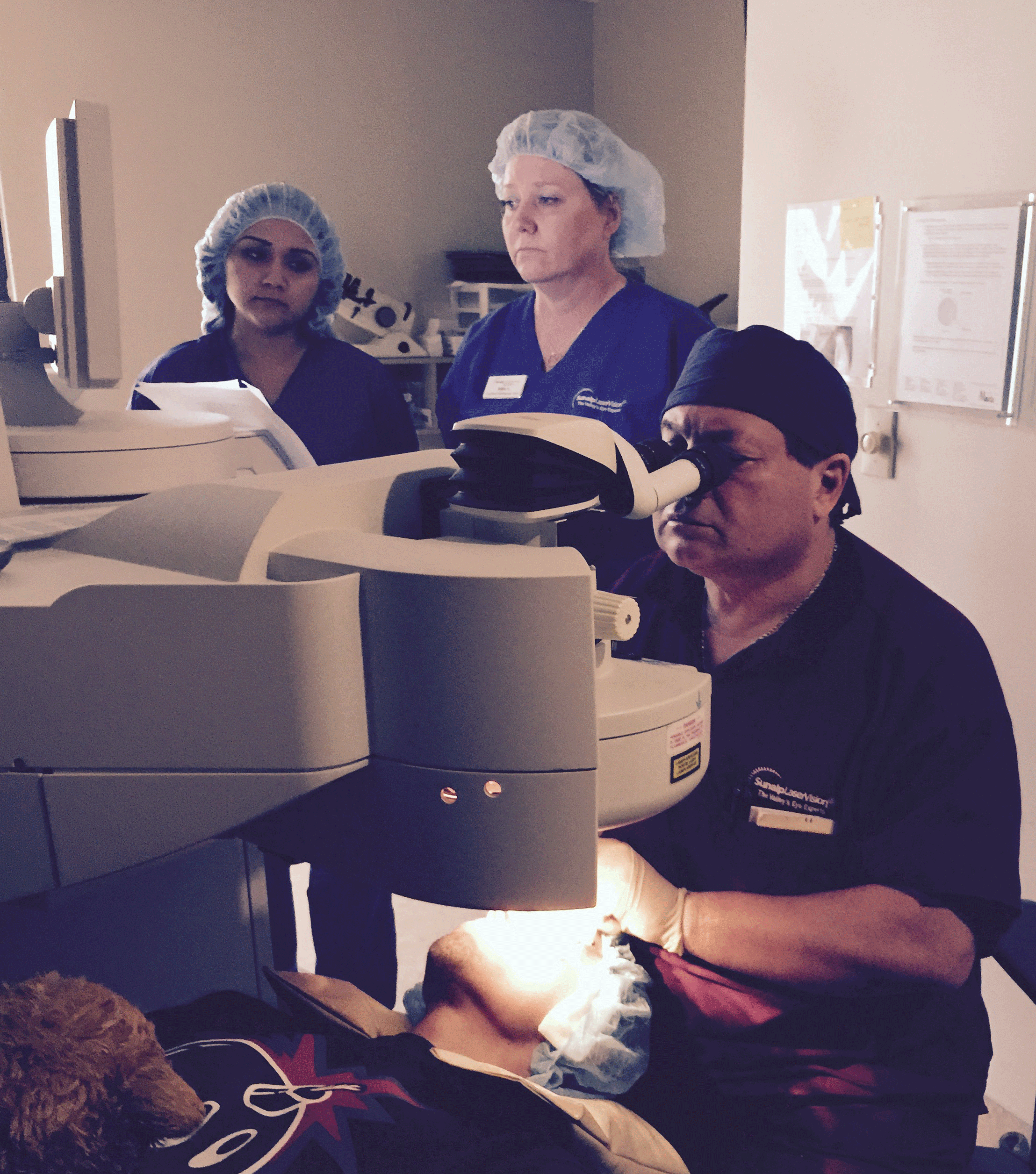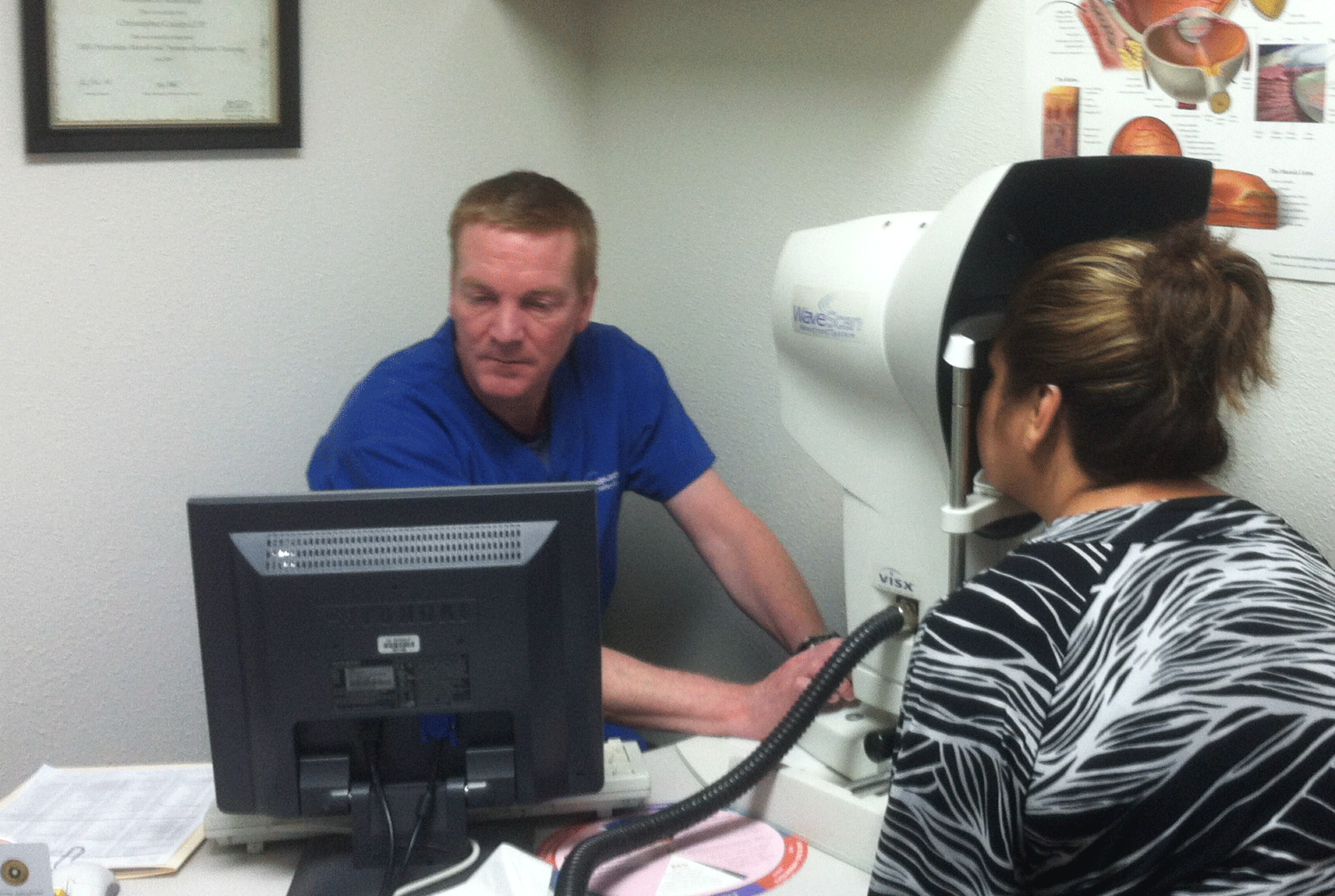LASIK
"I can't see a thing without my glasses and I'm tired of having to rely on them. Contacts drive me crazy but wearing eye glasses is like looking through a fish bowl. I feel like I'm looking at the world through a dirty window. I want to go surfing, swimming, scuba diving, skiing and still be able to see clearly"
These are some of the reasons people become interested in LASIK surgery. LASIK surgery is a way of altering the very front part of the eye to correct near sightedness, farsightedness and reading problems. It is performed in an outpatient setting in the doctor's office.
LASIK procedure in detail:
LASIK is a multistep procedure designed to reshape the cornea. Initially a precision instrument called a microkeratome is used to create a thin flap on the surface of cornea. Then a special type of laser is used to reshape the exposed cornea. This reshaping alters the curvature of the cornea ultimately allowing images to be focused clearly on the retina. The flap is then returned to its original position where it quickly attaches to the underlying tissue (usually in three to five minutes). This procedure achieves the desired visual results.

Dr. Sunalp performing a LASIK procedure
Is LASIK surgery right for me?
Not every eye is a good candidate for LASIK surgery. To be eligible for LASIK the eye must be in good health and vision must be stable. However, some people are better candidates than others and consultation with the doctor prior to surgery is important to determine estimated benefits and possible complications.
How long will the effect of LASIK last?
The effects of LASIK surgery are permanent. Age related changes still occur and if you are in your 40-50s you may need to wear reading glasses due to a normal age related loss of near vision. Around 5% of patients may require a second procedure known as an enhancement or "touch up" procedure to improve the vision to the desired level.
Does LASIK hurt?
No. During surgery your eye will be numbed by using a local anesthetic (eye drops). Following surgery there may be some brief eye irritation. You will receive medication to ensure you are comfortable during this brief post-operative period.

One Last Word
LASIK is surgery!
The LASIK procedure is well established and has resulted in better vision for millions of satisfied patients. However, as with all surgical procedures, there are side effects or complications that may have a serious, negative impact on your life. It is important to discuss the risks as well as benefits with your eye doctor before making a decision about LASIK.
Why choose Dr. Sunalp?
-
Free initial consultation
-
Safe, affordable LASIK surgery
-
Our surgical infection rate is ZERO (0)
-
Trained at University of Southern California (USC)-top 10 in the USA
-
Highly experienced physician (30 years and over 10,000 LASIK procedures)
-
Board certified physician
-
Dr. Sunalp is a diplomat of the American Board of Ophthalmology, a Fellow of the American Academy of Ophthalmology, Fellow of the Royal College of Ophthalmology, England and a Fellow of the American College of Surgeons
-
Our equipment is state-of-the-art
-
PRK, Monovision option is also offered.
-
0% financing available
-
All-inclusive LASIK treatment
What
do our patients say?
Monovision
Monovision is a technique of blending near vision in one eye and distance vision in the other. Monovision can be achieved as part of LASIK, Implantable Lens Refractive Surgery and Cataract surgery.
The easiest way to explain monovision is that it is an "overlapping" of near and distance vision. Where the two overlap is clear vision, with one eye responsible for near and the other eye responsible for distance vision. The chief advantage of monovision is the freedom it provides from reading glasses. After six to eight weeks the brain makes these changes automatically, without any conscious effort or awareness. Monovision makes it possible to repeatedly change the range of focus, without having to constantly remove or add corrective lenses. Monovision is not for everyone. It can be hard for the monovision patient to adapt to this "imbalance" because it is a compromise to perfect vision. People with monovision may have some degree of decreased depth perception without corrective lenses. They may also notice blurred vision in the "near" eye when glancing in the side mirror of their cars or when the vision in the "distance" eye is blocked by an object or have trouble with headlight glare when driving at night. Some people with monovision elect to wear corrective lenses for detail activities, such as night driving or prolonged reading so that both eyes are then in simultaneous focus.


